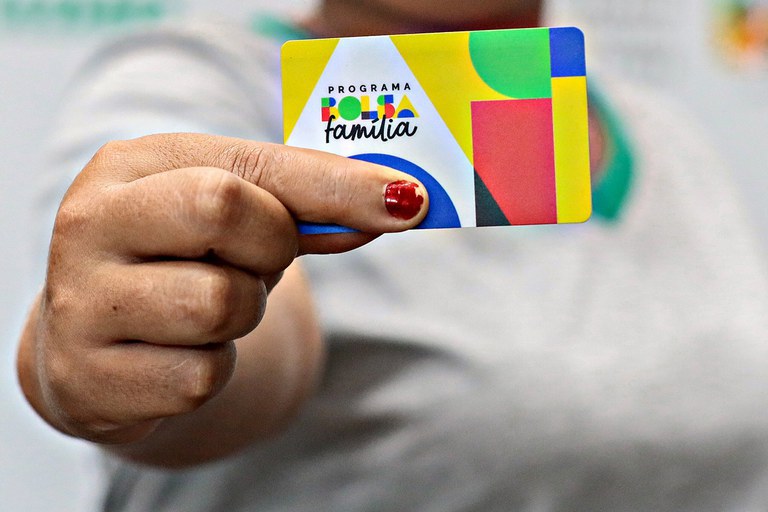Notícias
PNAD
Average per capita income in Brazil surges by 11.5% to reach 12-year high

The reinstatement of social programs such as Bolsa Família contributed to the record-breaking per capita income in Brazil in 2023.
"The household per capita income in Brazil grew by 11.5% in 2023 compared to 2022, reaching a record high of R$ 1,848. According to the Continuous National Household Sample Survey (PNAD Contínua), released this Friday (19 April), by the Brazilian Institute of Geography and Statistics (Instituto Brasileiro de Geografia e Estatística - IBGE), this marks the highest value in the survey's historical series, which began in 2012."
The indicators consider all sources of income: in addition to income from work, there is the category of other sources, including retirement and pensions, rent and lease, alimony, donations and remittances from non-residents, among others.
With the improvement in the job market and the increase in the number of beneficiaries of social programs like Bolsa Família, the total monthly household income per capita also saw a rise of 12.2% compared to the previous year, reaching BRL 398.3 billion.
The average real income from all sources increased by 7.5% compared to 2022, reaching BRL 2,846 in 2023 and approaching the highest level in the historical series, recorded in 2014 (BRL 2,850). After two years of decline due to the effects of the Covid-19 pandemic (2020 and 2021), this income resumed growth in 2022, estimated at BRL 2,648.
The average real monthly income typically received from all jobs (calculated for individuals aged 14 and over who are employed) was estimated at BRL 2,979 in 2023, representing an increase of 7.2% compared to 2022 (BRL 2,780) and a 1.8% increase compared to 2019 (BRL 2,927).
INCOME SOURCES – The proportion of people with some form of work-related income amounted to 46.0% of the country's resident population in 2023, marking a 44.5% increase compared to the previous year.
Among other sources of income, the highest average monthly income continued to be from retirement and pension benefits (BRL 2,408), which grew by 6.6% compared to the previous year (BRL 2,258) but remained 3.6% below the level observed in 2019 (BRL 2,499). In four of the major regions, this category also represented the highest average income among other sources. The exception was the South (BRL 2,321), where the average income from rent and leasing (BRL 2,661) surpassed this category’s records from last year.
Across the country, rental income averaged BRL 2,191, marking a 19.3% increase compared to the previous year (BRL 1,836). In 2023, this source accounted for 2.2% of the average monthly household income per capita of the population residing in Brazil.
Another category present in the composition of income from other sources is ‘other incomes’, which includes, for example, social programs such as Bolsa Família and the Benefício de Prestação Continuada (BPC/LOAS), as well as unemployment insurance, and scholarships, among others. The average income of people who declared receiving the category ‘other incomes’ reached BRL 947, the highest in the historical series.
Compared to 2022 (BRL 850), the increase was 11.4%, while compared to 2019 (BRL 747), the growth in the average value of other income was even more significant (26.8%).
The average income of the category consisting of alimony, donations, and remittances from non-residents was BRL 753, reflecting a growth of 4.6% compared to the previous year's estimate (BRL 720).
BOLSA FAMÍLIA - The survey also addressed the proportion of households with a Bolsa Família beneficiary. Last year, when the new version of the program was implemented, the proportion of households with beneficiaries reached the highest level in the historical series (19.0%). The highest percentages were in the North (31.7%) and the Northeast (35.5%).
The survey also highlighted a disparity in income between households enrolled in an income program and those without such assistance. Among households receiving Bolsa Família, the average monthly income per capita was BRL 635, whereas for those not enrolled, it amounted to BRL 2,227.